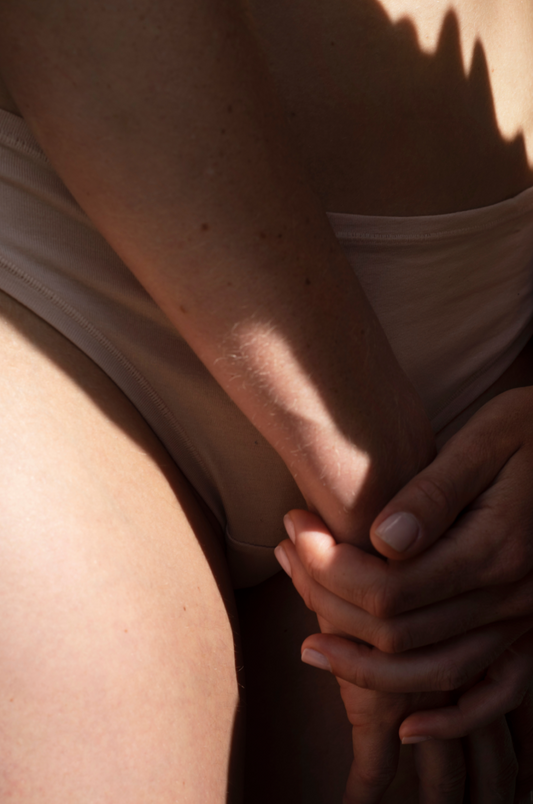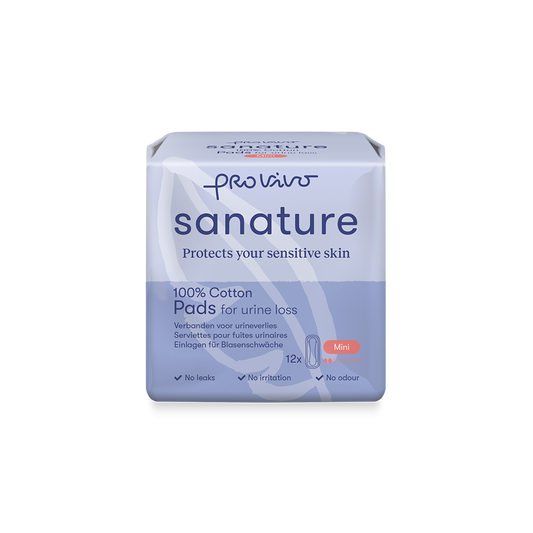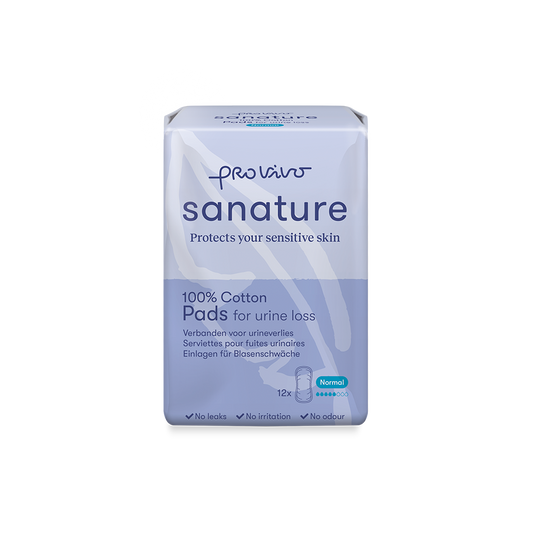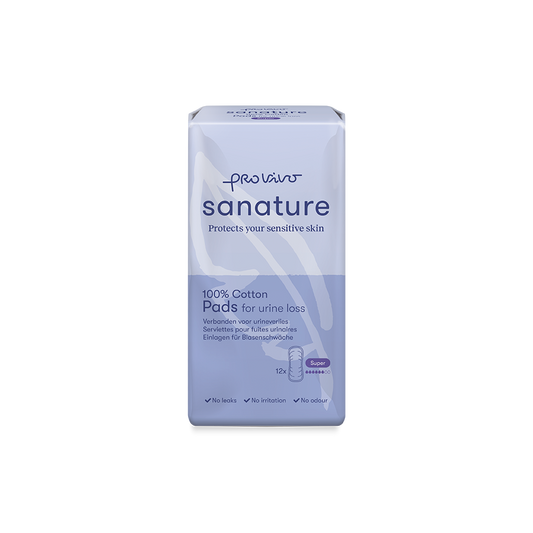Bladder leaks 101: What are they and what can you do?

What is urinary incontinence?
With urinary incontinence – UI for short –, your pelvic floor muscles are unable to retain urine (either partially or completely). This means you might pee yourself a bit.
“Normally, the pelvic floor muscles respond to bladder contractions by tightening and supporting the urethra,” explains Roseanna. “When this natural reflex gets dysfunctional, however, we leak unwanted urine.” These bladder leaks happen either during activities that add pressure inside your abdomen, like coughing, sneezing, laughing, jumping or running (known as stress incontinence). Or they happen after you get a sudden urge to pee and are unable to make it to the toilet in time (known as urge incontinence). It’s also possible to have a combination of both types of incontinence (mixed incontinence).

How do you know if I have incontinence? (what are the symptoms)?
Roseanna explains that diagnosing incontinence can usually be done based on your symptoms. You might experience:
- Accidental urination (peeing yourself) while sneezing, laughing, jumping or similar activities
- Feeling a sudden, uncontrollable urge to pee
- Accidental urination while you’re asleep
- Urine discharge in your underpants
What causes incontinence and bladder leaks?
“There are many causes of incontinence,” says Roseanna. Sometimes, it can be the result of a minor underlying condition (like a UTI), in which case your incontinence should clear up once the condition improves. In other cases, bladder leaks can be caused by weakened pelvic floor muscles (like after giving birth or menopause). Some common causes include:
- During pregnancy, your expanding uterus adds extra pressure to your bladder, which can cause bladder leaks. This should clear up a few months after giving birth.
- That being said, childbirth (both vaginal and caesarian) can add trauma to the muscles of your pelvic floor, potentially resulting in incontinence.
- During menopause, your pelvic floor muscles can weaken too, which can result in bladder leaks. You might also gain some weight, which can add extra pressure on your bladder
- Urine tract infections (UTIs) and kidney infections can temporarily cause incontinence by making your bladder swollen and irritated.
- Less commonly, incontinence can also be the result of damage to the nerves and muscles near your bladder, or of a loss of muscle control.
How can you alleviate bladder leaks?

In most cases, incontinence and bladder leaks can be cured (or significantly improved) with simple exercises and lifestyle changes. You might want to try:
Do pelvic floor exercises (also known as Kegels).
They have been proven to help incontinence by strengthening the muscles of your pelvic floor (which can be weakened by menopause or childbirth). It’s worth to note that, according to Roseanna: “Up to 80% of women perform pelvic floor exercises ineffectively, probably because you can’t see the muscle activate. It’s worth seeing a pelvic health physiotherapist, who can assess your technique and give you personalised exercises.”
Change your diet.
Caffeine (found in tea, coffee and some sodas), fizzy drinks, acidic or spicy foods and alcohol (amongst others) can irritate your bladder, explains Roseanna. Switching these out for milder alternatives might help ease bladder leaks.
Stay hydrated.
You might be tempted to limit how much water you drink to limit your bladder leaks. But, as Roseanna explains: “The mechanism behind bladder leaks isn’t associated with bladder capacity.” By staying hydrated, you can prevent your incontinence symptoms from getting worse. “Because the less we drink, the stronger our urine increases in its acidity, which can irritate the urethra.”
Discuss other options with your GP.
In addition to these at-home changes, there are plenty of medical solutions for incontinence too. Ranging from medication to physical therapy and surgery, your doctor can help you find the best solution for you.
When should you visit your GP?
“Although incontinence is common, it is never normal,” says Roseanna. Visit your GP if bladder leaks negatively impact your daily life. For example, if they prevent you from doing things you enjoy (exercise, hike, have sex) or if your vulval skin gets irritated. “As a healthcare professional, I certainly don’t judge women coming in with this symptom. I’m just here to listen, care and give you evidence-based management and advice,” Roseanna says.
How do you pick the right incontinence product or urine pad?

When it comes to self-managing bladder leaks, urine pads are your first line of defence. In our 100% cotton Pro Vivo range, you can find urine pads (also referred to as incontinence pads or incontinence products) ranging from thin and barely-there to extremely absorbent.
In addition to choosing the right absorbency for your bladder leaks (Roseanna recommends getting at least two different pads most fitting to your symptoms), picking the right incontinence pad material is important. “When using pads to manage your incontinence, you can damage your vulval skin, resulting in soreness, itching, redness and general discomfort.” This is especially true because pee (in contrast to period blood) is quite acidic, meaning it can irritate your skin.
“Incontinence pads are designed to draw moisture away from the skin, with 100% cotton pads absorbing a lot more moisture. These pads (such as Sanature Pro Vivo pads) have no chlorine and bleach, making them much kinder to your sensitive vulval skin. They have breathability (which is something you will only know when you make the switch),” Roseanne advices.
Sources:
https://www.sciencedirect.com/science/article/abs/pii/S0378512210003178
https://www.nhs.uk/conditions/urinary-incontinence/causes/
https://uroweb.org/news/despite-high-prevalence-urinary-incontinence-is-still-very-much-a-taboo


